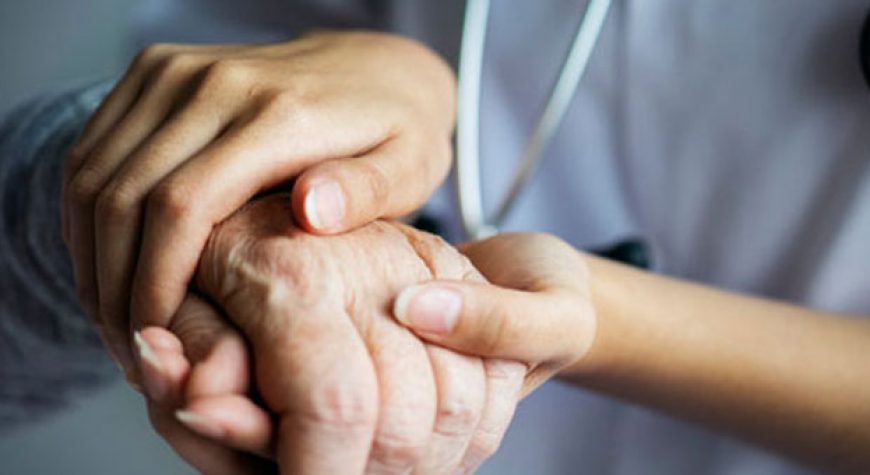Holistic Treatment For Chronic Kidney Disease (CKD)

On a global scale, we have witnessed the world population growth significantly. Apart from that, there has been a shift from decreased mortality from communicable diseases to an increased burden of non-communicable diseases like Asthma, Heart Disease, Diabetes, and Chronic Kidney Disease among others. Chronic Kidney Disease (CKD) is a progressive disease. The conventional treatment for which is to delay the progress through the process of periodic dialysis. If detected at a later stage, a kidney transplant is the last resort. Failure of this treatment can lead to kidney failure causing seizures, coma, or death. Cardiac arrest is the most common cause of death in people with CKD.
Diabetes and Hypertension are among the two main reasons for the rise in Chronic Kidney Disease. One of the main causes for this is that the patients suffering from Diabetes and Hypertension have to ingest heavy chemical compounds through medication which puts pressure on the kidneys leading to their deterioration. People should regularly test themselves to diagnose any issues with kidneys. Doctors generally prescribe a blood test to measure serum creatinine level. A person with a healthy kidney will show low levels of serum creatinine, whereas an unhealthy kidney will report a rise.
For an average common man suffering from CKD, the conventional treatment is nothing short of an exorbitant debt as each cycle of dialysis can cost anywhere between 12,000 to 18,000 rupees. Add to that the consultation fees, and cost of allopathic medicines, and the total could be more than an average monthly salary. Dialysis is not exactly a ‘treatment’ to treat CKD. It is a process through which functions of a kidney are substituted by a machine or equipment to be performed externally. It ultimately results in the removal of toxins from the body, but the process is painful, time-consuming, and expensive for patients as well as their families.
In the recent past, there have been examples of how alternative treatment and holistic therapies have been used to successfully treat and/or reverse a bunch of diseases including communicable and noncommunicable. One of the much talked about therapy is Panchakarma based on the principles of Ayurveda.
Panchakarma therapy can restore your natural state of health and wellness by cleansing your body of toxins, bringing balance into your system, and improving bodily function. It is the ultimate Ayurvedic detoxification of the body and mind. It is a collection of therapies that are highly individualized based on the Ayurvedic constitution type (Prakriti) and imbalances (doshas).
Panchakarma is a five-fold therapy and includes treatments that can help reverse the negative effects of an imbalanced lifestyle by flushing out toxins internally as well as externally. One can say that Panchkarma is a painless and organic way to perform dialysis.
Herbal medication as an add-on treatment is advised along with Panchakarma therapy. The goal of Ayurveda is not only to treat the core problem by stopping the progression of the disease and of the damaged kidneys with organic herbal medication. The therapy also helps treat the tissues that make up the kidneys so that they can be revived to function normally. Herbal and organic medicine support the therapy by working in tandem to reduce the time for treatment and healing.
The purpose of Panchakarma treatments is to rejuvenate the kidney cells so that they may start to work on their own eliminating the need for dialysis or transplant. The advantage of using the Ayurvedic approach in CKD is that in most patients, the kidney damage can be either partly or fully reversed, the frequency of dialysis can be reduced, and the increased risk of death from cardiovascular diseases can be significantly reduced.
Panchakarma therapies and Ayurvedic treatments have shown progress in patients suffering from Stage 1 to Stage 4 of CKD. Stage 5 patients showed a remarkable decrease in dialysis too. Unlike conventional treatment, the Panchakarma treatment doesn’t exhaust and weaken the patients, but rather re-energizes them by improving their overall health.
The other benefit of Panchakarma treatment is that it not only heals the kidney but also treats other symptomatic diseases, and helps holistically reverse Diabetes and Hypertension. This, in turn, benefits the patient by improving their quality of health thereby improving their quality of life. Also, the treatment is supported by a well-researched diet that helps to heal the body, mind and soul and supports the primary objective of the Ayurveda and Panchakarma treatments.
The overall advantages of the treatments include, but are not limited to reduced pain, improved joint mobility, circulation, improved lymphatic drainage, reduced muscular tension, purification of blood, and immunity boost among others.
One can avail of the holistic benefits of Ayurved and Panchakarma treatments at Dr. Joshi’s Multispeciality Clinic which has been successfully treating patients since its beginning in the early 2000s. They have adopted technologies from around the globe to manufacture advanced organic medicines by engaging the active principle of any given medicinal ingredient. With the collective experience over the years, Dr. Joshi’s clinic has successfully treated and or reversed more than 100 diseases. Some of the treatments have been recognized and appreciated by renowned institutions as well.

